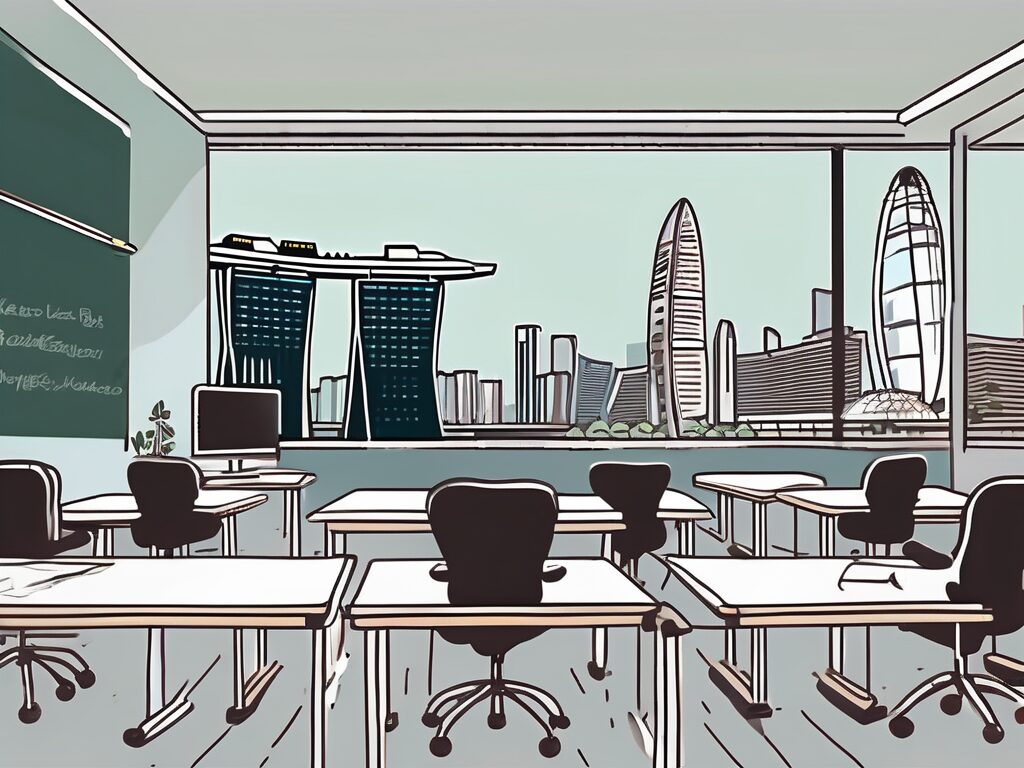html
Top 4 Teaching Challenges with a Master’s in Education in Dubai & Qatar
As the education landscape in the Middle East continues to evolve, educators with advanced qualifications, such as a Master’s in Education, are increasingly sought after. However, teaching in dynamic environments like Dubai and Qatar comes with its own set of challenges. In this blog post, we will explore the top four teaching challenges faced by educators in these vibrant regions, providing insights and strategies to navigate them effectively. Whether you are a seasoned teacher or just starting your career, understanding these challenges can empower you to thrive in your educational journey.
1. Cultural Diversity in the Classroom
One of the most significant challenges teachers face in Dubai and Qatar is the rich cultural diversity of their classrooms. With students hailing from various nationalities and backgrounds, educators must adapt their teaching methods to cater to a wide range of cultural perspectives and learning styles.
To effectively manage this diversity, teachers can:
- Incorporate Inclusive Teaching Strategies: Use teaching methods that respect and celebrate cultural differences. This can include integrating multicultural content into the curriculum and encouraging students to share their cultural experiences.
- Foster an Inclusive Environment: Create a classroom atmosphere where all students feel valued and respected. This can be achieved through team-building activities and open discussions about cultural differences.
- Professional Development: Engage in training programs focused on cultural competency to better understand and address the needs of a diverse student body.
2. Adapting to Rapid Educational Reforms
Both Dubai and Qatar are undergoing significant educational reforms aimed at improving the quality of education. These changes can be overwhelming for teachers who must adapt their teaching practices to align with new standards and curricula.
To navigate these reforms successfully, educators should:
- Stay Informed: Regularly attend workshops and seminars to keep abreast of the latest educational policies and practices.
- Collaborate with Colleagues: Work with fellow educators to share insights and strategies for implementing new curricula effectively.
- Embrace Technology: Leverage educational technology tools that can facilitate the transition to new teaching methods and enhance student engagement.
3. Language Barriers
Language can be a significant barrier in classrooms where English is not the first language for many students. This challenge can hinder effective communication and learning, making it essential for teachers to find ways to bridge the gap.
Here are some strategies to overcome language barriers:
- Utilise Visual Aids: Incorporate visual aids, such as images, videos, and infographics, to support understanding and retention of information.
- Encourage Peer Support: Foster a collaborative learning environment where students can help each other, particularly those who are more proficient in English.
- Provide Additional Language Support: Offer extra help for students struggling with language, such as after-school tutoring or language workshops.
4. Balancing Workload and Well-being
Teaching can be a demanding profession, and educators in Dubai and Qatar often face heavy workloads that can lead to burnout. Balancing professional responsibilities with personal well-being is crucial for long-term success in the field.
To maintain a healthy work-life balance, teachers can:
- Set Boundaries: Establish clear boundaries between work and personal time to ensure adequate rest and relaxation.
- Practice Self-Care: Engage in activities that promote mental and physical well-being, such as exercise, meditation, or hobbies.
- Seek Support: Connect with colleagues and professional networks for support and encouragement, sharing experiences and coping strategies.
Conclusion
Teaching in Dubai and Qatar presents unique challenges that require adaptability, cultural sensitivity, and a commitment to professional growth. By understanding and addressing these challenges, educators can create a positive impact in their classrooms and contribute to the evolving educational landscape in the region.
Empower Your Teaching Career with IPGCE
As we strive for a more inclusive education system in Malaysia, the role of qualified and well-trained educators becomes increasingly crucial. IPGCE is dedicated to supporting teachers in their professional journey, offering the International Postgraduate Certificate in Education (iPGCE) to enhance qualifications and open doors to international teaching opportunities. With our program, you can expect a significant increase in interview callbacks, promotion rates, and salary. Plus, you’ll join a global network of educators, gain a deeper understanding of international curricula, and enjoy the flexibility of online study. Don’t let inadequate credentials or isolation hold you back. Join the UK’s #1 Teacher Training Course today and take a decisive step towards a fulfilling career in inclusive education.

